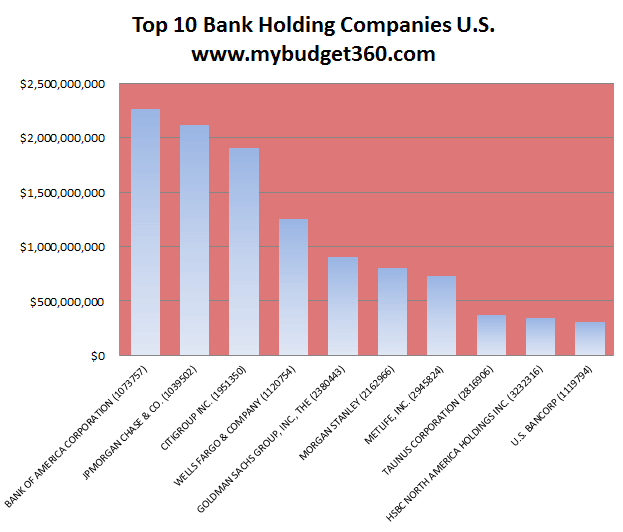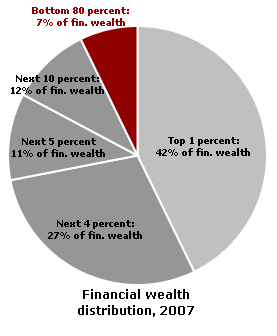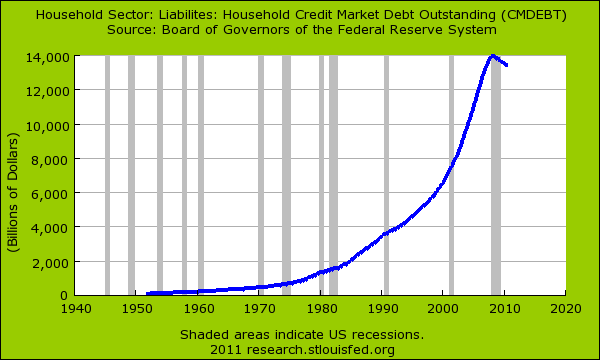Your one-stop shop for news, views and getting clues. I AM YOUR INFORMATION FILTER, since 2006.
Saturday, March 12, 2011
Beck's site suspects O'Keefe's NPR tapes were doctored
Couldn't be prouder: Filet-o-Fish invented in NKY

UPDATE: Somebody pointed out that the filet-o-fish is actually not very healthy. Well he can go suck an egg white!
Thursday, March 10, 2011
Mosques and Islam are healthy for U.S. government
The more religious American Muslims are, the more civically involved they are, and the more likely they are to support the U.S. system of government. Gee, whoda thunkit.
'Course, they all could have been programmed to lie to pollsters by their radical, America-hating imams.
By the way, Rep. Peter King is a stupid douchebag for having these hearings on Muslims in America. He's handing anti-U.S. propaganda on a platter to radical Islamists who will tell their co-confessionals, "See, we told you so: America hates Islam." His needless neo-McCarthyite hearings will create more anti-U.S. terrorists and put more of our citizens at risk.
Congress should organize a counter-hearing on how Rep. Peter King is making Americans less safe and what we should do about it.
Mosques are a positive force in America
By Karam Dana and Matt A. Barreto
March 9, 2011 | CNN
URL: http://edition.cnn.com/2011/OPINION/03/09/barreto.muslim.religion/index.html?hpt=Sbin
Wednesday, March 9, 2011
Rush: 35% of Americans are garbage
Rush and the Right never got this upset about the Wall Street bailouts, or the $ billions in bonuses paid out to banksters with our tax money. This shows where his sympathies lie. Don't you be duped (again) by another very well paid apologist for the super-rich who wants to screw you over and collect your vote at the end.
Obama's America: A Welfare State
March 9, 2011 | The Rush Limbaugh Show
URL: http://www.rushlimbaugh.com/home/daily/site_030911/content/01125107.guest.html
20 lies by Wis. Gov. Scott Walker -- GET INFORMED OR STFU!
20 lies (and counting) told by Gov. Walker
By Russell King
March 5, 2011 | Russ' Filtered News
URL: http://filterednews.wordpress.com/2011/03/05/20-lies-and-counting-told-by-gov-walker/
Saturday, March 5, 2011
Big media lies: Public-union membership, political contributions NOT mandatory
The irony here is that while unions can't compel workers to fork over a penny for political campaigns, corporations can donate unlimited amounts of their shareholders' equity to do so – they are, in fact, in the 'unique position' to elect pliant lawmakers. 'What the right-wing and the business community always try to portray is that you have these union bosses that are forcing helpless employees to give them money,' says Gold, 'when the reality is that these are their members who chose to be in a union and then elected their officers democratically, in sharp contrast to corporations, none of whose officers are elected democratically unless you count shareholders voting at an annual meeting as a real democratic system.'
And conservatives have long held that voluntary donations to political campaigns are a high form of free speech. The double standard is clear-- 'money equals speech' unless it's money freely donated by working people to advance their own economic interests.
Indian lesson in globalization?
Friday, March 4, 2011
What 18th century American economy was really like
Tea Party history insists ordinary, hard-working Americans of the founding era wanted nothing more than to reduce government and keep it out of economic markets. But what those Americans really wanted can be gleaned from their terminology. The rich called them rioters. The people called themselves regulators.
Thursday, March 3, 2011
Against public money funding Dems? Be consistent.
Tuesday, March 1, 2011
Jones: We don't know how to protest
An effective protest should be explicitly threatening. (Yeah, I know, I could end up on Glenn Beck's chalkboard 20 years from now for talking wild-eyed anarchist lunacy like that.) The threat could be of violence. Or it could be of massive work disruptions or civil disobedience. A threat not to vote for somebody is usually a lame threat, because in most cases the voters protesting are written off by the other side's politicians as unwinnable, just like the public sector unions protesting now are written off by Republicans, who don't seek to win them over, but rather destroy them as an organized group.
(Actually Jones argues that conservatives don't know how to protest either. But I don't think it's in their nature to threaten the existing order from the street. If they're p.o.'d about the country then they start forming an escape plan, or organizing militias and hoarding guns and supplies....)
February 27, 2011 | The eXiled
MB360: U.S. economy still built on debt, TBTF banks
Posted by mybudget360
This sort of distribution does not bode well for our economy. We have witnessed what happens when giant banks fail because they were allowed to grow too large for their own good. A sort of disequilibrium occurs and if things collide as they usually do the taxpayer is left holding the bag of junk debt. Every week one or two smaller banks fail almost without any news. This is really how our economy should work. Banking assets should be distributed in a more even fashion where if the biggest bank failed, there would be enough banks with enough assets to make up for the lost services provided by the one bank. It would not be a systemic problem. But many of the too big to fail incur large amounts of leverage so are in debt to even more than the face value of their assets. It is a thinly veiled method of speculation with the implicit support of the American taxpayer. As the gambling gets more intense, so does the wealth evaporation in the real economy.
The top 1 percent in the United States control 42 percent of all financial wealth. But breaking it down further we realize that the top 10 percent control 93 percent of all financial wealth. This kind of imbalance was last seen in the United States right before the Great Depression hit. It is a historical irony that during the Great Depression many people started feeling wealthier because they were getting into massive amounts of consumer debt (nothing like today) and had the ability to speculate in the stock market on margin. While it was estimated that only 1 million Americans dabbled in the stock market at that time, most of the wealth again was aggregated at the top as it is today. The vast majority where only spectators buying a lottery ticket for the get rich show. Most Americans are leveraged to the hilt with debt while true unencumbered financial wealth keeps trickling to a very small segment of our economy. While some would argue this is the end result of unfettered capitalism the reality is the wealth is being siphoned off from the productive public by this elite class buying off politicians and creating a system favorable to those with means and not with the best or most innovative idea. It is a plutocracy and these kinds of systems do not last. Right now the growth of the plutocracy is occurring on the backs of the dwindling middle class.
Take a look at the raw number of assets at these top banks:
Bank of America is the leader with $2.2 trillion in assets followed by JP Morgan Chase at $2.1 trillion. CitiGroup has $1.9 trillion and Wells Fargo has $1.2 trillion in assets. It is surprising that Goldman Sachs has $911 billion even though it isn't even a traditional bank like the first four. But no bank at these levels is really traditional anymore. All of these banks have mixed commercial and investment banking together and that is why you see Morgan Stanley right behind Goldman.
The problem with these "assets" is that many of these banks are claiming commercial real estate and residential real estate at inflated values. A loan to a bank is an actual asset. For example, say an investor purchased $100 million in commercial real estate out in Las Vegas and borrowed the money with Bank of America. $90 million of this was on a loan. Bank of America can claim a $90 million asset. Say this was purchased at the peak and the value of the investment is now $40 million (or less). How is it possible that Bank of America can still claim that this piece of land is worth $90 million just because of the face value of the loan? This is what is going on everyday in America. A large pretend game that everything somehow hasn't lost its value. But it has.
Many of you can see the absurdity in this kind of accounting. Simply using artificially high values to claim assets at peak levels. In reality, how much of the above asset list is really worth what they say it is? Hard to say but it is likely a lot lower and banks know this so they are systematically leaking out properties onto the market now that they have shored up their capital balance sheets with trillions of taxpayer dollars. The Federal Reserve is content with the public having the wool pooled over their eyes. This is similar to when gold was confiscated during the 1930s banking crisis yet those that managed to hold onto gold or other valuable commodities did well as the U.S. devalued the dollar during the Great Depression. Bottom line is the government is not going to tell you what is good for you. Even now after a 10 year rally, bubble, or whatever you want to call it you still have Wall Street and government insiders talking ill of commodities. The reason? They cannot print at will when they have to back money with something that is tangible.
The fact that these banks leverage and borrow from the Federal Reserve and consequently devalue the US dollar of Americans, results in a bad ending for most. The concentration of wealth at the top both in society and with banks is a cautionary sign that we are not out of the woods.
There is an enormous amount of debt still out there in the economy. Just look at household debt:
Sure household debt has fallen from the peaks but $13.4 trillion in debt via mortgages, credit cards, auto loans, student loans, and other debt is still attached to average Americans. Interestingly enough the FDIC insured banks have $13.3 trillion in assets. You can do the math here but this is a country largely built on debt and the quality of debt outstanding is questionable at best and you need only look at the millions of foreclosures that will happen this year for that confirmation.



